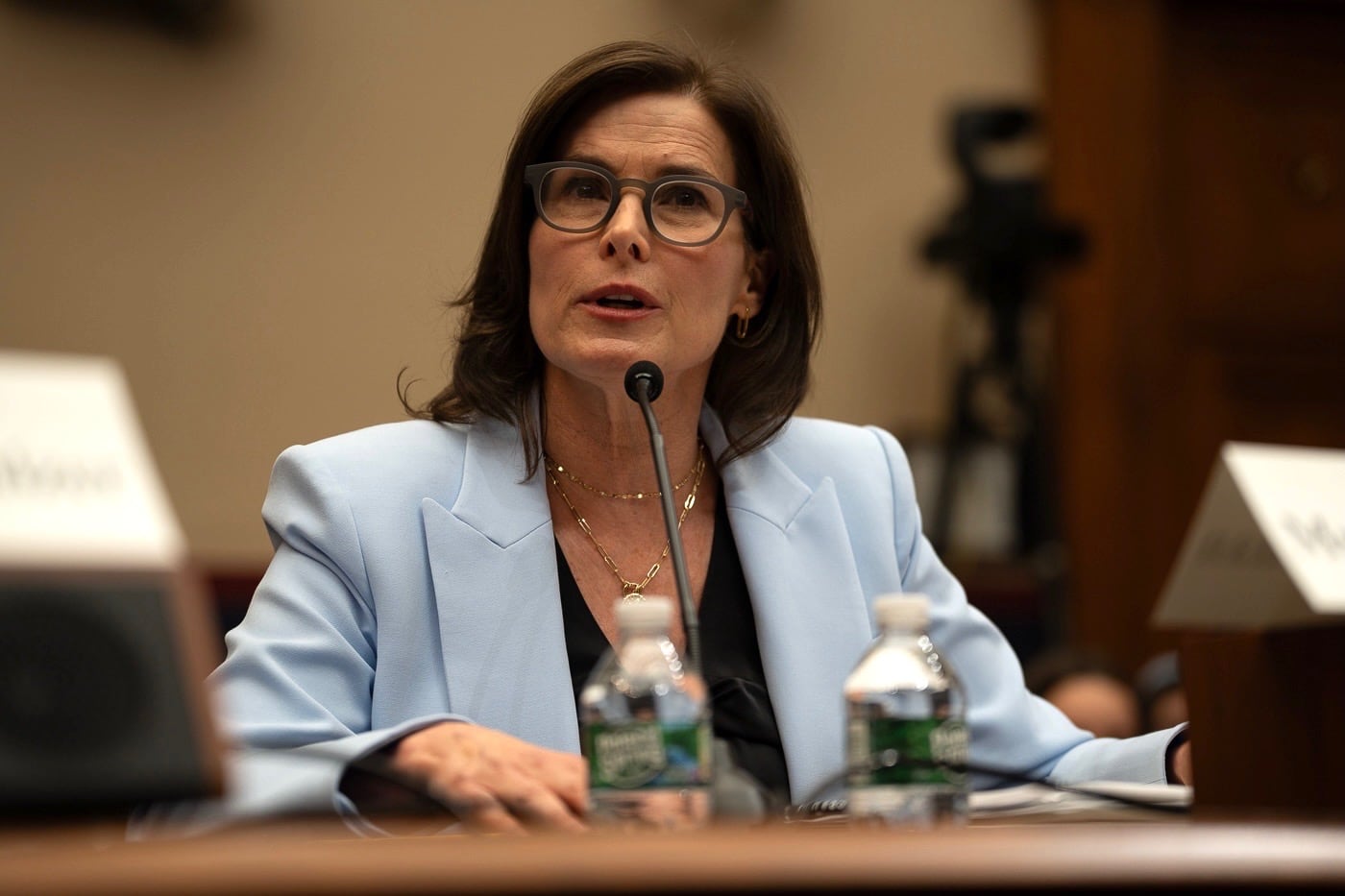News | Administration
Shipman pens first email to Columbia community as acting University president
Claire Shipman, CC ’86, SIPA ’94, replaced former interim University President Katrina Armstrong on Friday evening.

By Gabriella Gregor Splaver / Columbia Daily SpectatorThe Federal Task Force to Combat Antisemitism called Shipman’s appointment “an important step toward advancing negotiations” in a Friday statement.By Spencer Davis and Nadia Knoblauch • March 31, 2025 at 7:44 PM
By Spencer Davis and Nadia Knoblauch • March 31, 2025 at 7:44 PM
Acting University President Claire Shipman, CC ’86, SIPA ’94, sent her first email to the Columbia community Monday afternoon after assuming the position Friday evening.
“Ornamental language can’t disguise the fact that this is a precarious moment for Columbia University,” Shipman wrote.
Columbia has been the focus of intense scrutiny from President Donald Trump’s administration for its handling of pro-Palestinian activism on campus and what the government has identified as a failure to curb antisemitism at the University.
On March 7, the Federal Task Force to Combat Antisemitism canceled $400 million in federal grants and contracts with the University over its “continued inaction in the face of persistent harassment of Jewish students,” the task force wrote in a news release.
Less than a week later, the Trump administration sent a list of demands for Columbia to meet as a precondition to negotiate the restoration of federal funding and to maintain a “continued financial relationship” with the federal government.
On March 21, the University announced that it would adopt many of those demands. The changes include the appointment of a senior vice provost to oversee curriculum and non-tenure faculty hiring at the Middle Eastern, South Asian, and African studies department, the Center for Palestine Studies, and the Institute for Israel and Jewish Studies.
“Let there be no confusion: I commit to seeing these changes implemented, with the full support of Columbia’s senior leadership team and the Board of Trustees,” Armstrong wrote in a Tuesday statement following media reports that she had downplayed these changes to faculty in a closed meeting.
The Federal Task Force to Combat Antisemitism wrote in a Friday statement that Shipman’s appointment, “especially in light of this week’s concerning revelation, is an important step toward advancing negotiations.”
Shipman wrote in her email that the University will “continue to build on the significant progress we’ve made, and the plan outlined to move our community forward.”
“I pledge to be as transparent as possible, and to work as hard as I can to do right by a place that is so critical to all of us, and to the world,” she wrote.
Shipman wrote that she transferred into the first class of women at Columbia College, “not appreciating that fact at the time.”
Shipman, who was raised in Columbus, Ohio, wrote that she “wasn’t particularly well-versed in the Ivy League.”
“What I found here was a place that ignited my curiosity and drive to explore,” Shipman wrote. “As is the case for so many students, I arrived at Columbia, and something clicked. I recognized myself.”
Shipman wrote that after graduating from the School of International and Public Affairs, she served on the SIPA advisory board, the college board of visitors, and the University’s board of trustees. Shipman first joined the board of trustees in 2013 and served as its co-chair alongside David Greenwald, Law ’83, since 2023.
“I want to express my deep gratitude to Dr. Katrina Armstrong for taking on the challenge of stepping in as Interim President, and for her heroic efforts over the past seven months,” Shipman wrote.
Armstrong stepped down from her post as interim University president on Friday evening and returned to her position as chief executive officer of Columbia University Irving Medical Center.
Shipman will serve as acting University president until the board of trustees completes its presidential search for Columbia’s 21st president. The University has been without an inaugurated president since former University President Minouche Shafik resigned in August 2024.
Shipman called on students, faculty, and staff to “come together and work to protect and support this invaluable repository of knowledge, this home to the next generation of intellectual explorers, and this place of great and continuing promise.”
“I look forward to seeing you on campus,” she wrote.
Deputy News Editor Spencer Davis can be contacted at spencer.davis@columbiaspectator.com. Follow him on X @spencerdaviis.
Staff Writer Nadia Knoblauch can be contacted at nadia.knoblauch@columbiaspectator.com. Follow Spectator on X @ColumbiaSpec.
Want to keep up with breaking news? Subscribe to our email newsletter and like Spectator on Facebook.
More In News
Editor's Picks

